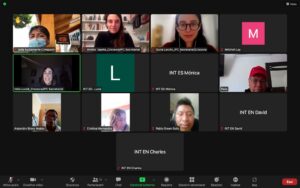March 9, 2022
The Regional Advisory Group are the regional extension of the Advisory Group for the Global Strategic Framework in support of the implementation of the SSF Guidelines (SSF-GSF), whose establishment was endorsed by COFI in 2016 to boost the implementation of the SSF Guidelines. In that occasion, the IPC FWG was appointed as global Advisory Group, thanks to the key role it played in the drafting and endorsement of the SSF Guidelines back in 2014. In 2019, the Advisory Group expressed the willingness to bring the implementation process of the SSF Guidelines closer to the regional realities, where the governments are less incline to start a policy convergence process, and where the CSOs networks have more difficulties in coordinating themselves and raise their voice. For these reasons, in 2020, IPC Secretariat and the IPC Working Group on Fisheries networks began to set up of the Regional Advisory Groups. These regional platforms were established following the system used by the Civil Society Mechanism (CSM4CFS), as it represents the organizational will of CSOs and mirrored the FAO regional division, thus facilitating the interaction with the FAO regional officers and, consequently, the participation of the Regional AGs in the FAO Regional Conferences, the most important regional policy processes concerning food and nutrition. Up until few weeks ago, only the Regional AGs in Africa and Asia and the Pacific were fully established and operative, but on February 8th 2022 the newly appointed members of the Regional Advisory Group in Latin America and Caribbean met for the first time and defined the first steps of the RAG work in the region.
As for their role, the RAGs mandate mirrors that the global one, allowing the regional SSF representatives to develop regional coordination mechanisms, strengthening civil society’s efficiency to lead the implementation of the SSF Guidelines at the national level, and develop advocacy strategies to generate a policy change at the regional and national level. The regional platforms are also crucial to better link local issues at the global level and vice-versa. In addition, these platforms facilitate exchanges among social movements in different regions and working at different levels by sharing knowledge and stimulating discussions to formulate clear and shared political positions. In the newly established RAG in the Latin American and Caribbean region sits the regional representatives of the main four network of the IPC Working Group on Fisheries, namely WFF, WFFP, IITC and La Via Campesina. The members had been appointed in order to reflect the sub.-regional divisions of the Latin America and Caribbean region: representatives from Mexico, Panama and Antigua and Barbuda to represents Central American and Caribbean; representatives from Chile, Perù and Ecuador for the Andean Region; and for the South Cone, members from Argentina and Brazil. But besides their network affiliation and sub-regional provenance, all the members of the GAR have one common element and goal; they all represent SSF people and communities in the LAC region and want to push forward the recognition of SSF people and Indigenous Peoples’ rights and the implementation of the SSF Guidelines in their own countries and at regional level.
